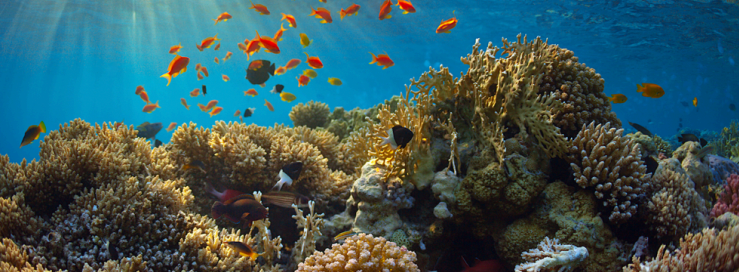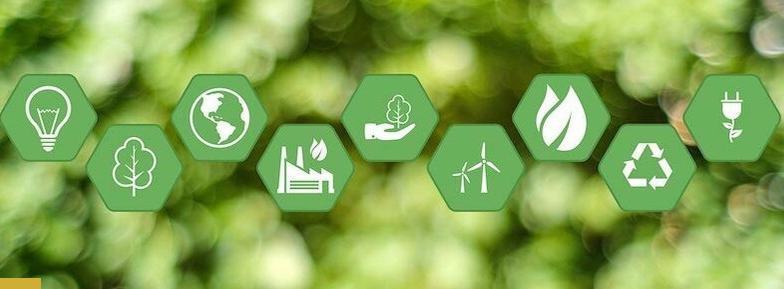
by WEB | Jul 17, 2025 | Resources
The global push for climate action is driving governments and industries to adopt innovative technologies to cut emissions. Among them, carbon capture and storage (CCS) beneath the seabed has emerged as a potential solution offering long-term storage for CO? emissions from industrial sources.
To ensure such technologies are deployed safely, the London Convention and its modern counterpart, the London Protocol, serve as key international frameworks. These treaties regulate the disposal of waste at sea and provide the legal basis for subsea CCS, balancing climate innovation with marine protection.
The London Protocol permits the safe injection and permanent storage of captured CO? in sub-seabed rock formations, particularly from large single-point sources such as power plants and industrial facilities. It enforces strict environmental safeguards, including impact assessments, long-term monitoring, and risk management to protect marine ecosystems. Amendments have also enabled cross-border transport of CO? for offshore sequestration, fostering international collaboration on climate mitigation.
This evolving regulatory landscape highlights the growing need for technical expertise in assessing the environmental implications of marine-based climate interventions. AGV is well-positioned to support such initiatives through its expertise in climate-related reporting and Ocean EIAs. With proven capabilities in aligning disclosures with global sustainability frameworks and navigating regulatory requirements, AGV can help proponents of CCS and other ocean-based solutions demonstrate transparency, compliance, and environmental responsibility.
Marine-based climate solutions are gaining traction, and AGV helps organisations align their sustainability reporting with global standards such as IFRS S2 and GRI. By helping translate complex initiatives into clear, credible disclosures, AGV supports stakeholder confidence and enables responsible climate action. To learn more about how AGV can support your environmental compliance and sustainability goals, reach out to our team.
Download Newsletter

by riosue | Jun 30, 2025 | Resources

Waste-to-Energy (WTE) solutions are gaining traction as Malaysia advances toward a circular economy and low-carbon future. Under the 12th Malaysia Plan and the National Energy Transition Roadmap, the government aims to develop 18 WTE plants by 2040 to modernise solid waste management, reduce landfill reliance, and generate up to 600 megawatts of renewable energy. These facilities divert non-recyclable waste from open burning and landfills major methane emitters while contributing to national climate goals, including a 70% renewable energy capacity and a 45% emissions reduction by 2050.
As part of this agenda, Malaysia’s second WTE plant is under development in Sungai Udang, Melaka, with a projected investment of RM660 million. Set for completion by 2029, the facility will process 1,000 tonnes of waste daily, generate 22 megawatts of power, and cut over 259,000 tonnes of CO? emissions annually equivalent to planting more than four million trees.
https://theedgemalaysia.com/node/759627
AGV Environment has been appointed as the consultant for the Environmental Impact Assessment (EIA), to be submitted to the Department of Environment, and the Social Impact Assessment (SIA), to be submitted to PLANMalaysia the national planning department under the Ministry of Housing and Local Government. These assessments ensure the project meets regulatory standards while addressing environmental and community considerations. AGV’s role is to support responsible project development by delivering the studies and insights needed for informed, compliant decision-making.
Download Newsletter
AGVE delivers targeted environmental and social assessments to help businesses and authorities meet regulatory obligations while advancing sustainability goals. With proven expertise across industrial, commercial, and development sectors, we provide the insights needed for informed, sustainable project execution. Talk to us today to explore how we can support your next initiative

by riosue | Jun 5, 2025 | Resources

AGV, leading environment, sustainability & climate change consulting group, can assist your data center project development to meet low-carbon data center criteria as required by local authorities and your customers.
With more than 10 years of experience in GHG Emission accounting, we can develop a comprehensive carbon footprint assessment Scope 1, 2 and 3, and develop a robust decarbonisation strategy that aligns with local authorities’ framework for low-carbon city development and national net zero and national energy transition roadmap.
Our consultants are certified to verify your carbon numbers to provide your data center with verified carbon footprint reports.
Our advisory services include renewable energy consultation and carbon credit offset to reduce your carbon footprint. We have the expertise to guide you to achieve a green data center requirement.
We offer our extensive experience in environmental consulting to mitigate environmental risks and meet DOE’s requirements.
- We can conduct quantitative risk assessment (QRA) for underground diesel storage for the back-up generators.
- We can propose water treatment from water discharged from air-conditioner chiller system to comply with regulations.
- Our Environmental Site Assessment services helps to determine baseline contamination levels and monitor possible leakage of diesel from storage tanks and during the storage tank filling process.
Download Newsletter
Email us at inquiry@agvenvironment.com or call us at 03-79311455, we will be glad to review your
requirement develop a proposal for your needs.

by admin | Jun 5, 2025 | Resources
Nature-related risks are increasingly influencing the business landscape, and companies that consider biodiversity in their decision-making are better positioned for long-term sustainability. As climate change accelerates biodiversity loss, transparent reporting helps organisations build investor trust, enhance resilience, and align with global sustainability commitments. TNFD disclosures help businesses identify and manage nature-related dependencies, while creating opportunities for responsible growth. Integrating biodiversity considerations into reporting enhances risk management and accountability.
AGV can help organisations bridge this gap by providing TNFD-aligned disclosures supported by biodiversity assessments, ensuring that nature-related financial risks and ecosystem dependencies are effectively integrated in strategic decision-making.
We bring extensive expertise in sustainability consultancy, playing a pivotal role in guiding businesses through biodiversity challenges. Our team of seasoned environmental consultants includes ecologists with deep knowledge and hands-on experience across diverse ecosystems. From terrestrial and aquatic environments to marine and avian ecology, our specialists are well equipped to identify risks and opportunities stemming from biodiversity impacts in project development.
How AGV Approaches TNFD Reporting
AGV provides tailored consultancy services to help businesses navigate TNFD reporting effectively. Our expertise includes:
-
Gap Analysis & Readiness Assessments – Evaluating current reporting practices and identifying areas for improvement.
-
Strategic Integration – Aligning TNFD disclosures with existing sustainability frameworks to ensure consistency.
-
Risk & Opportunity Analysis – Applying methodologies like TNFD’s LEAP approach (Locate, Evaluate, Assess, Prepare) to assess nature-related risks.
-
Stakeholder Communication – Crafting clear, impactful disclosures that resonate with investors and regulatory bodies.
In adopting TNFD recommendations, companies can strengthen sustainability strategies, build stakeholder confidence, and contribute to wider biodiversity conservation efforts.
Download Newsletter





